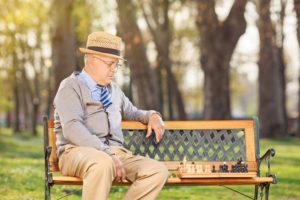
Independa, innovators of the award-winning TV-based social engagement, education and care platform, announced the results of a commissioned U.S. consumer survey, finding COVID-19 has had a critical impact on older adults’ mental health and physical health.
The results detail alarming new statistics about older adults abusing prescription drugs and alcohol, feeling despondent and being at an increased risk of committing suicide since COVID-19. On the positive side, the survey found older adults have largely exercised COVID-19 safety precautions, significantly limiting the amount of times they leave home.
The nationwide survey of 1,000 American adults with an older adult parent (over 70) who lives alone found that during COVID-19:
- Three out of four (77%) are abusing prescription drugs
- Nearly two-thirds (65%) are abusing alcohol
- Over half (54%) have a diminished will to live
- Nearly half (49%) are believed to be at increased risk for self-harm/suicide
- 70% of older adults ventured outside their home fewer than 15 times (14% haven’t left home once)
“We have all been isolated from friends and family during the pandemic, but no demographic suffers more than our older adults,” said Kian Saneii, founder and CEO of Independa. “The survey we commissioned shows just how badly our older adults are failing to thrive in isolation leading to significant health risks to an already vulnerable population.”
Other interesting findings from the survey include:
- Over half of men (51%) are at an increased risk of suicide and self-harm, compared to 37% of women
- 76% are experiencing mental health decline
- 68% are experiencing physical health decline
- 88% are more isolated from loved ones
- Out of all interactions, 53% report their parent misses “seeing their face” the most
- Over half (53%) feel forgotten about
- 85% of adult children of older adults feel considerable guilt about not being able to do more for their parent
- Half (50%) believe video chat is the next best option to in-person visits for connecting with their parent
“Sadly, and untenably, as older adults dramatically reduce social engagement in support of COVID-19 protocols, they risk serious mental health issues,” Saneii added. “As humans, we need social connectivity, and as a compassionate society and species, we can and must do better to protect our older adults without further exacerbating their already prevalent challenges of isolation and loneliness.”
